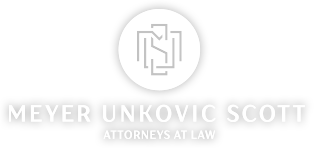For the last several years, trademark owners across the U.S. have fallen victim to a massive scam letter scheme by sending money to phony entities posing as a subsidiary of the U.S. Patent and Trademark Office (USPTO) and/or trademark offices in foreign jurisdictions. Though the USPTO has taken proactive measures to combat this issue, little has changed since the letters first surfaced, and the situation has escalated rapidly.
Created on what looks like official letterhead from familiar-sounding groups such as “The Brand Registration Office,” the letters often reference information about a trademark that is pulled directly from the USPTO’s public registries. Typically, the scammer will be looking for payment of some kind and an invoice is often included – with the hope that it is simply forwarded to an accounting department for payment.
In the absence of formal legal action, the USPTO has encouraged education, warning applicants at each step of the registration process. The group also hosts a web page containing samples of the fraudulent solicitations and a fact sheet as a reference to owners. Some guidelines they provide to owners and applicants include:
- All official correspondence about your trademark application or registration will be from the “United States Patent and Trademark Office” in Alexandria, Virginia, and all emails will be from the domain “@uspto.gov.” If any attorney represented you in filing a trademark application, official correspondence will go to that attorney.
- Don’t be fooled by company names that sound like government agencies or offers that contain government data. Some company names may include terms like “United States,” “U.S.,” “Trademark,” “Patent,” “Registration,” “Office,” or “Agency.”
- Some offers and notices may include official government data publicly available from USPTO records or refer to other government agencies and sections of the U.S. Code.
- The USPTO cannot help owners get a refund from a private company if they paid money or signed up for services based on a misleading offer or notice.
When it comes to protecting your intellectual property, vigilance is always key. If any doubt exists, owners are urged to consult with a trusted attorney to determine the legitimacy of communications regarding their trademark.
For questions regarding the information presented above, please contact David G. Oberdick at [email protected] or 412-456-2881.

